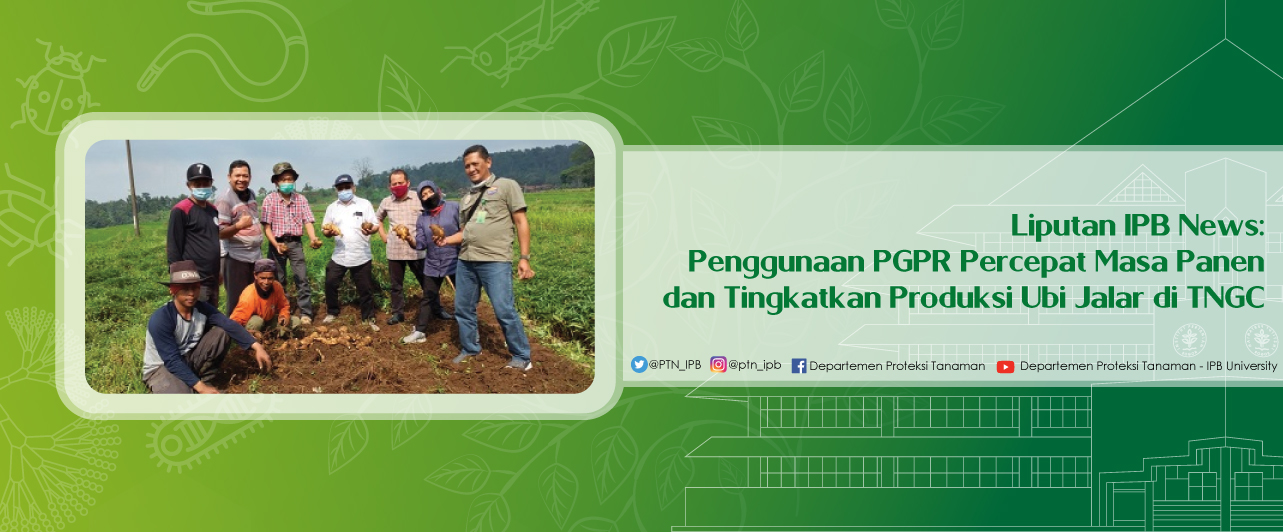
IPB News Coverage: Use of PGPR to Accelerate Harvest Periods and Increase Production of Sweet Potatoes in TNGC
The leadership of the Faculty of Agriculture, IPB University, paid a field visit and harvested sweet potatoes in Cibuntu Village, Pasawahan District, Kuningan, West Java. Cibuntu Village is a supporting village for Mount Ciremai National Park (TNGC) which is located in Pasawahan District, Kuningan Regency. As a buffer village, Cibuntu Village has the potential for nature conservation and fertile agricultural land. Cibuntu villagers are known to be compact in nature conservation and agricultural activities. One of them is sweet potato farming.
The visiting group consisted of the Dean of the Faculty of Agriculture, Dr Sugiyanta, Deputy Dean for Resources, Cooperation and Development, Dr Suryo Wiyono, Deputy Dean for Academic and Student Affairs, Dr Afra D N Makalew and Secretary of the Department of Plant Protection, Dr Dewi Sartiami.
“Sweet potato planting in Cibuntu Village implements PGPR (Plant Growth Promoting Rhizhobacteria) originating from TNGC. This PGPR was developed by one of our lecturers at the Plant Protection Department. This started with the scarcity of subsidized fertilizers in Cibuntu Village. TNGC sees this scarcity as an opportunity to make efforts to manage the ecosystem in Cibuntu Village, which is the village that supports the National Park by utilizing microbes as a substitute for chemical fertilizers, "said Dr. Sugiyanta.
Based on Dr Sugiyanta's explanation, PGPR is bacteria that live around plant roots. These bacteria live in colonies covering the roots of plants. For plants, the presence of these microorganisms is very good, because these bacteria provide advantages in the process of plant physiology and growth.
Cibuntu residents apply a combination of PGPR with manure to support the growth of sweet potatoes. The land used for planting sweet potatoes is 70 hectares.
Cibuntu Village farmers are satisfied with the implementation of PGPR for sweet potato cultivation. According to them, the use of PGPR can accelerate the harvest period by one month and increase sweet potato production by up to 2.5 tons. The hope is that farmers can consistently use PGPR and manure as agricultural inputs. The implementation of PGPR can be an effort to maintain the balance of the ecosystem in the village that supports the Mount Ciremai National Park so that it is not damaged by contamination and chemical fertilizer residues. (** / Zul)
Article in IPB News: Use of PGPR to Accelerate Harvest Periods and Increase Production of Sweet Potatoes in TNGC


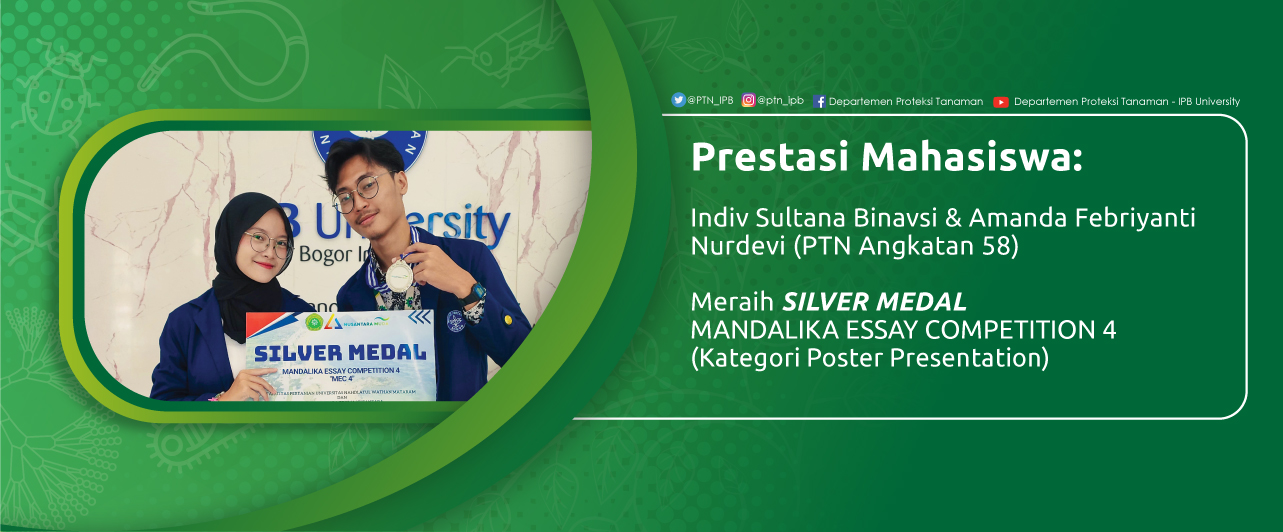
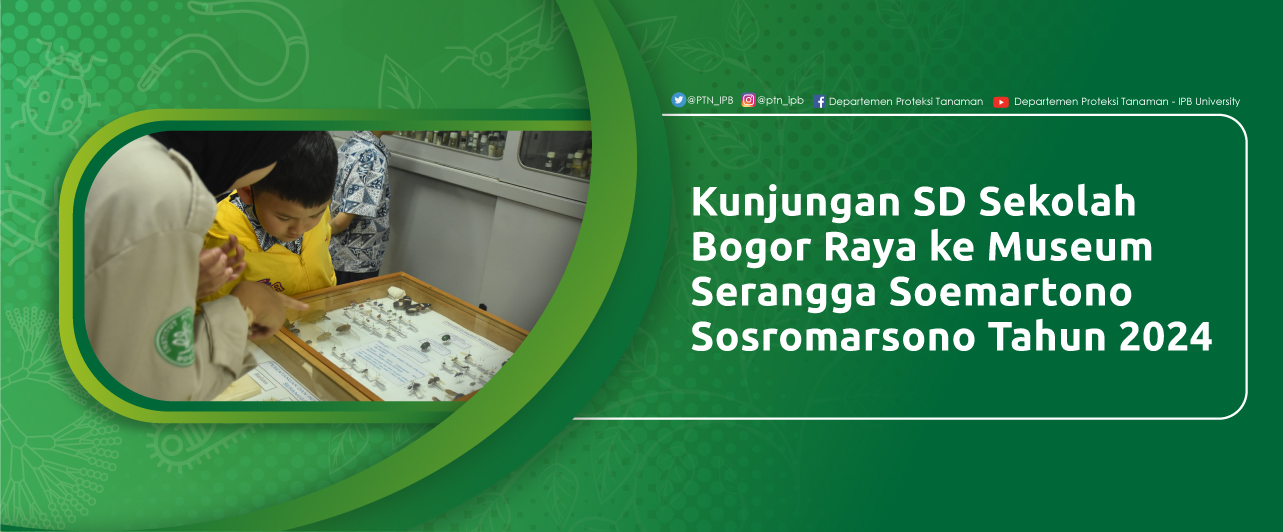
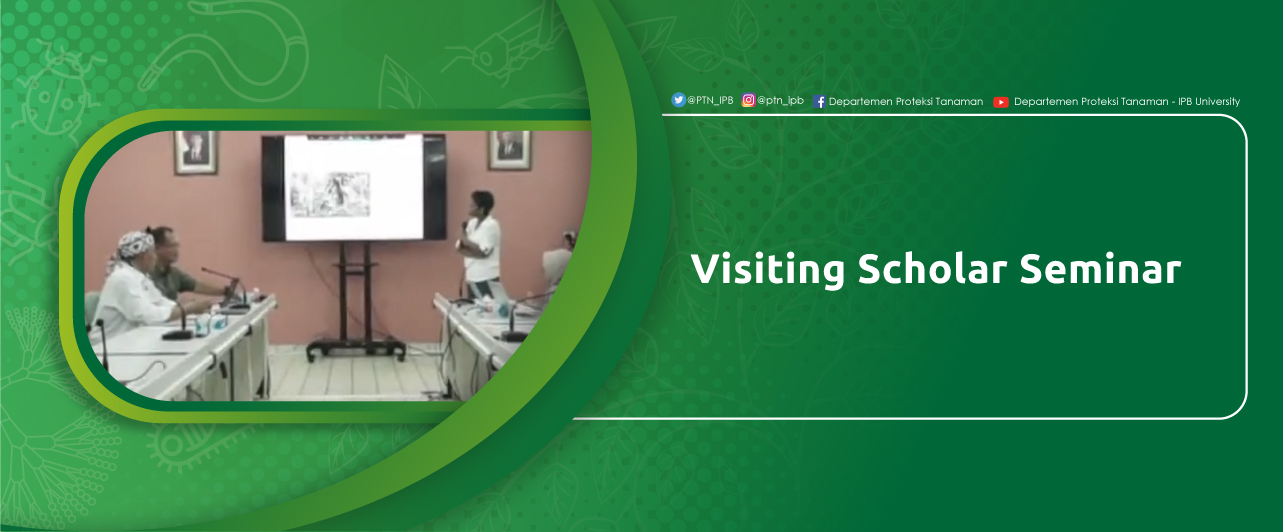

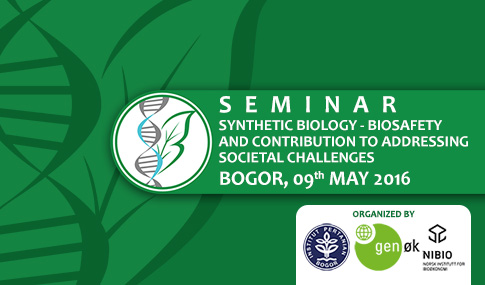
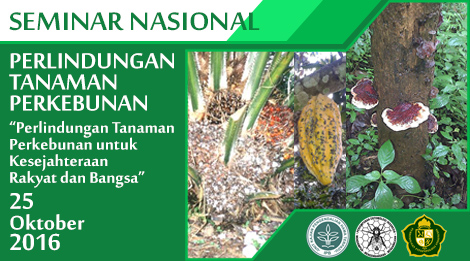

.jpg)